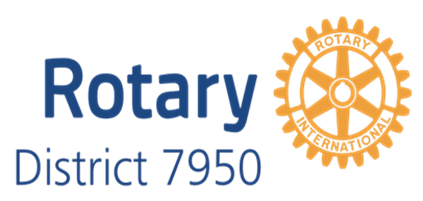Our Beginings
WATER Resources
Ann Williams during the spring of her term as District Governor, 2002-2003, organized a group of District 7950 Rotarians to support an effort to bring clean water to families of third world nations in Central America. This was the beginning of what is now know as the Pure Water Initiative Committee.
Many years prior to this, some of the Clubs in District 7980, Southern Vermont and New Hampshire, and part of Massachusetts, were supporting Doctors and Dentists traveling to Central America to provide professional care to the impoverished areas. Over several years of providing medical services the Doctors told of the conditions they working in. The District decided to change the direction of their approach from trying to cure the diseases, to preventing the cause of the diseases. Basically what they had heard the Doctors say was, "we can temporally cure some of the people and relieve their suffering this week, but next week they will be sick again." The cause of the chronic sickness and unusually high death rate among the children was the water they drank and cooked with. There is plenty of fresh water available, however it is full of parasites that cause Cholera, Diarrhea, Typhoid Fever and Hepatitis A & E. Necessary sanitation and personnel Hygiene was unknown to these people.
Initially several high technical solutions were tried, such as large solar boilers. This proved to be too expensive, and complex for the local population. It was determined that a simple Slow Sand Bio-Filter installed in a family's home would provide all the necessary technology to clean the local ground water of up to 98% of the bad Pathogen's.
The Central American country of Honduras was found to have political foresight to see this solution could improve the health of their citizens. The government was stable and would provide the much needed government personnel to assist in getting this program started, and excepted by the people that would receive the filters. This was where we started our first efforts and invested our Committee's money's, and with the help of a group of Rotarians who had started a small company, Pure Water for the World, Inc. in the mid 1990's, installed the first filters in Danli, outside of Tegucigalpa, the Capital of Honduras.
The success of this first effort gave us the beginning of how to support other activities in Honduras. Our District joined with several Rotary Districts to open a new area in Honduras in 2006. This effort was centerrd in the provence of Choluteca, Honduras, the poorest part of the country. This effort in the form of a Matching Grant request was approved by the Rotary Foundation and was started in early 2007. It is one thing to build the filters, train the staff and families receiving these filters on their use, but transporting the filters from the factory to the user is a challenge in a country with few paved roads. Because the RF matching grant doesn't allow for buying the needed trucks for transportation, our District provided the money to buy a new truck. Later our District chipped in more money to support the purchase of a second used truck. This two year MG was completed on schedule and on budget. A second MG request was approve to continue this effort. One of our District's Clubs is the sponsoring club for this MG. This should be completed in 2011.
Our District's Water Resources Committee started to support other water activities in 2009 by providing money to the buy two pieces of test equipment for the Middletown Rotary's efforts in Cambodia. Money was also provided to a project in India which Lou Marciano had identified. This effort was successfully completed in early 2010. The committee supported, with money, the effort of the Wakefield Rotary Club to get a MG to place filters into the poor sections outside of Lima, Peru. This effort has just started. Haiti has also been support with money to help install water filter in their devistated capital city. This has been done with new approach. Rather than installing filters into individual homes; in Haiti groups of filters have been install in central locations from which the local families can come a get clean water.

